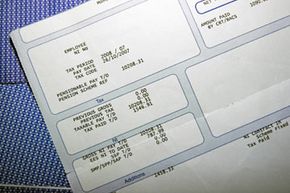Eric Sandberg wants to retire some day. The Marine helicopter pilot was fighting in Iraq when he began thinking about his financial future. While reading about financial planning, he learned that only 6 percent of Americans will be financially independent when they retire. The rest will need to supplement their income. Sandberg was scared. He began putting the maximum amount of his salary -- 10 percent -- into his government savings plan. He also maxed out his IRA contributions [source: Franklin].
Sandberg and his wife also began contributing 23 percent of their pretax income to their retirement savings portfolio. They invested 100 percent of those savings in a variety of mutual funds. Their Semper Fi attitude is nothing short of inspiring. If they keep saving and investing -- the two are in their 30s now -- the pair will likely retire comfortably [source: Franklin].
Advertisement
While 23 percent is a lot of money to save out of your paycheck, any amount you save is better than nothing. Although consumer spending plummeted when the nation found itself in the throes of a major recession in 2008, people actually began saving more money. How much more? In 2005, the national savings rate was below zero [source: Isidore]. In November 2010, the saving rate had jumped to 5.3 percent [source: Bureau of Economic Analysis].
Saving money from your paycheck each week is a daunting task, especially if you're trying to dig out from under the weight of credit card debt, college loans, mortgages and daily living expenses. While it may be easier to say "what's the use?," don't throw in the towel just yet. How much you sock away every paycheck depends on a variety of factors including your income, your debt and your living expenses. Read on to find out how much you should be saving and how to do it.
Advertisement



